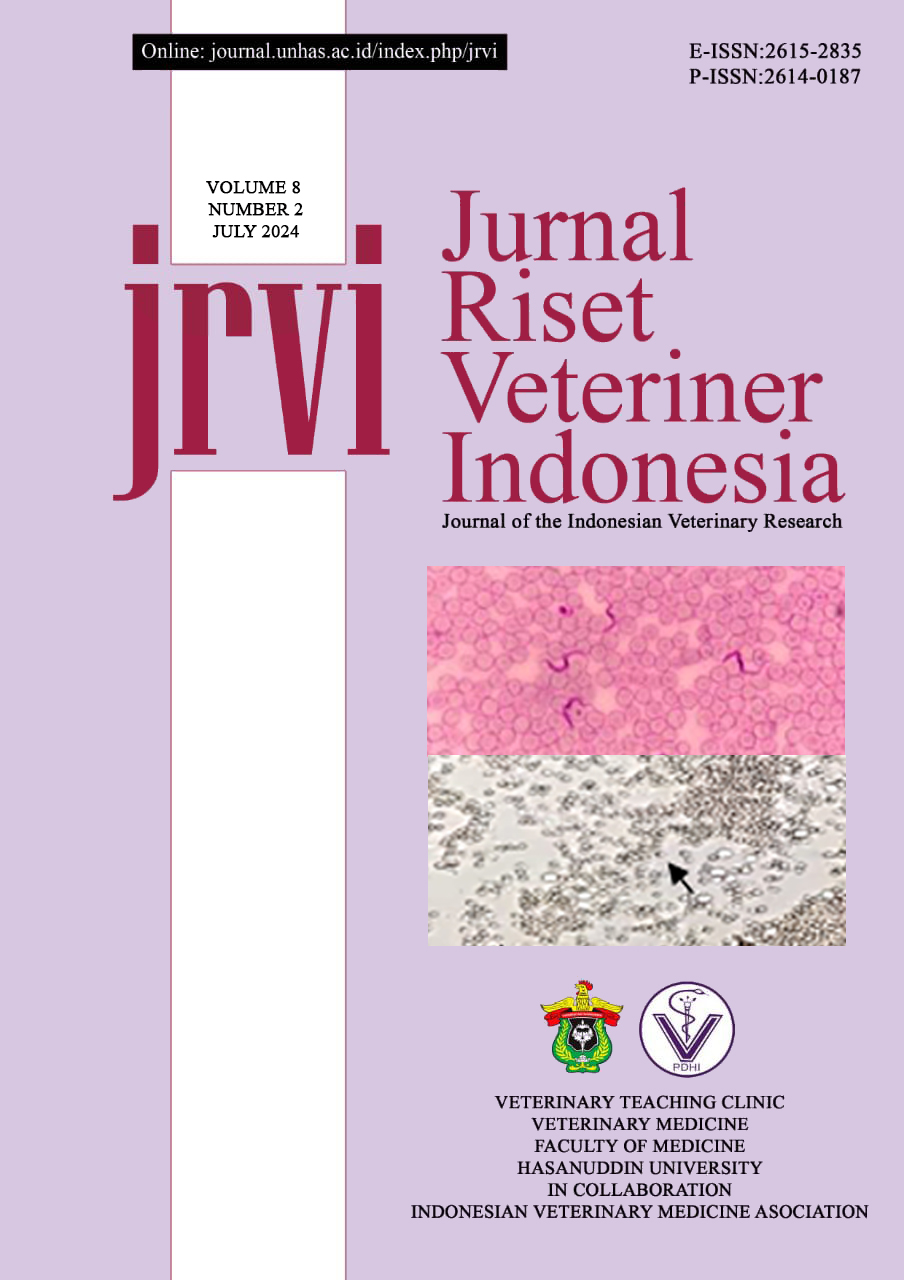Abstract
Gentamicin is an antibiotic from the aminoglycoside group that works by inhibiting protein synthesis but has side effects such as nephrotoxicity and ototoxicity and can induce oxidative stress in the testes. Oxidative stress is when the number of free radicals increases or the amount of antioxidants decreases. Oxidative stress induction in the testes has a degenerative effect on the testes, so the normal function and structure are disturbed. Dutch eggplant is one of the natural antioxidants that have the potential to protect cells from damage caused by oxidative stress. The utilization of this fruit extract has been proven to have secondary metabolic components in the form of phenols, flavonoids, anthocyanins, and carotenoids, which are antioxidants. This study aimed to examine the effect of tamarillo katarrung extract on the histology of the testes of gentamicin-induced Wistar rats. The research was conducted at the Integrated Laboratory of Animal Clinic Education, Hasanuddin University, Makassar. The sample used in this study amounted to 20 white rats of the Wistar strain, which were divided into four groups. The negative control group (K-) was untreated rats, and the positive control group (K+) was given gentamicin 20mg/kg BW induction for 11 days. The first treatment group (P1) was given tamarillo katarrung extract 200mg/kg BW for 14 days and gentamicin 20mg/kg BW for 11 days, while the second treatment (P2) was given tamarillo katarrung extract 200mg/kg BW for 14 days and gentamicin 20mg/kg BW for 11 days. The results showed a significant difference (p<0.05) between groups K+ and K-, P1 and P2. The histological description of the rat testes with the Johnson score shows that the tamarillo katarrung extract can defend testicular tissue from damage due to oxidative stress with the most optimal dose of 200 mg/kg BW.
Keywords: tamarillo katarrung, antioxidant, gentamicin, rat

This work is licensed under a Creative Commons Attribution-NonCommercial 4.0 International License.

